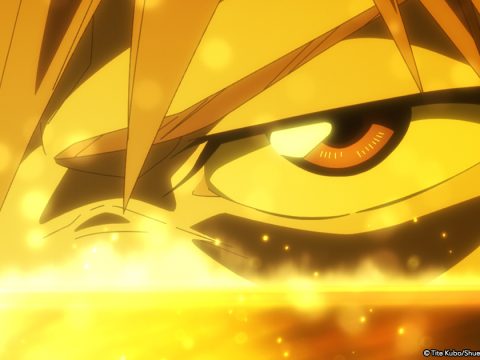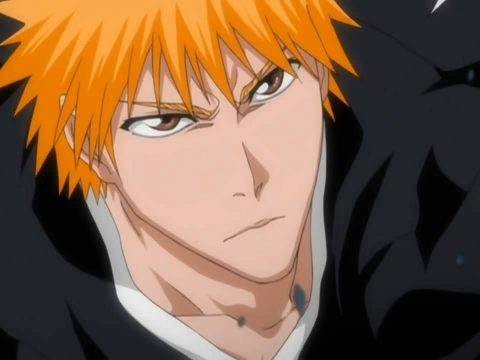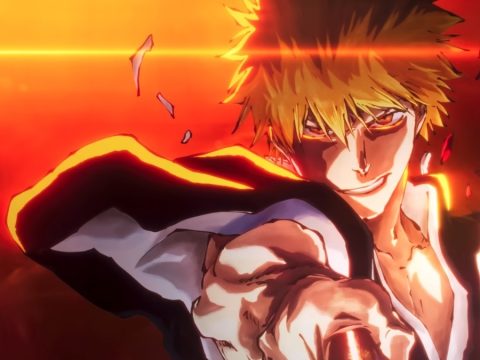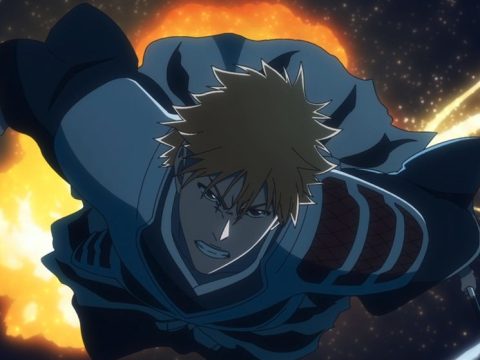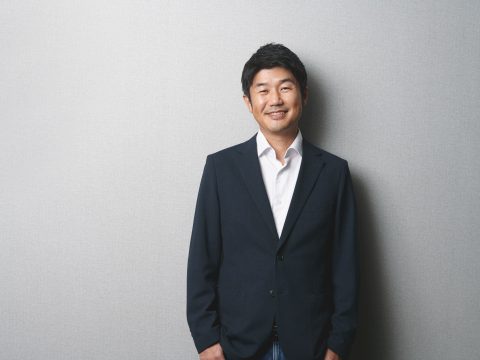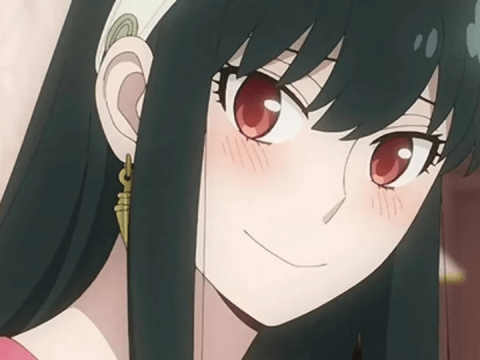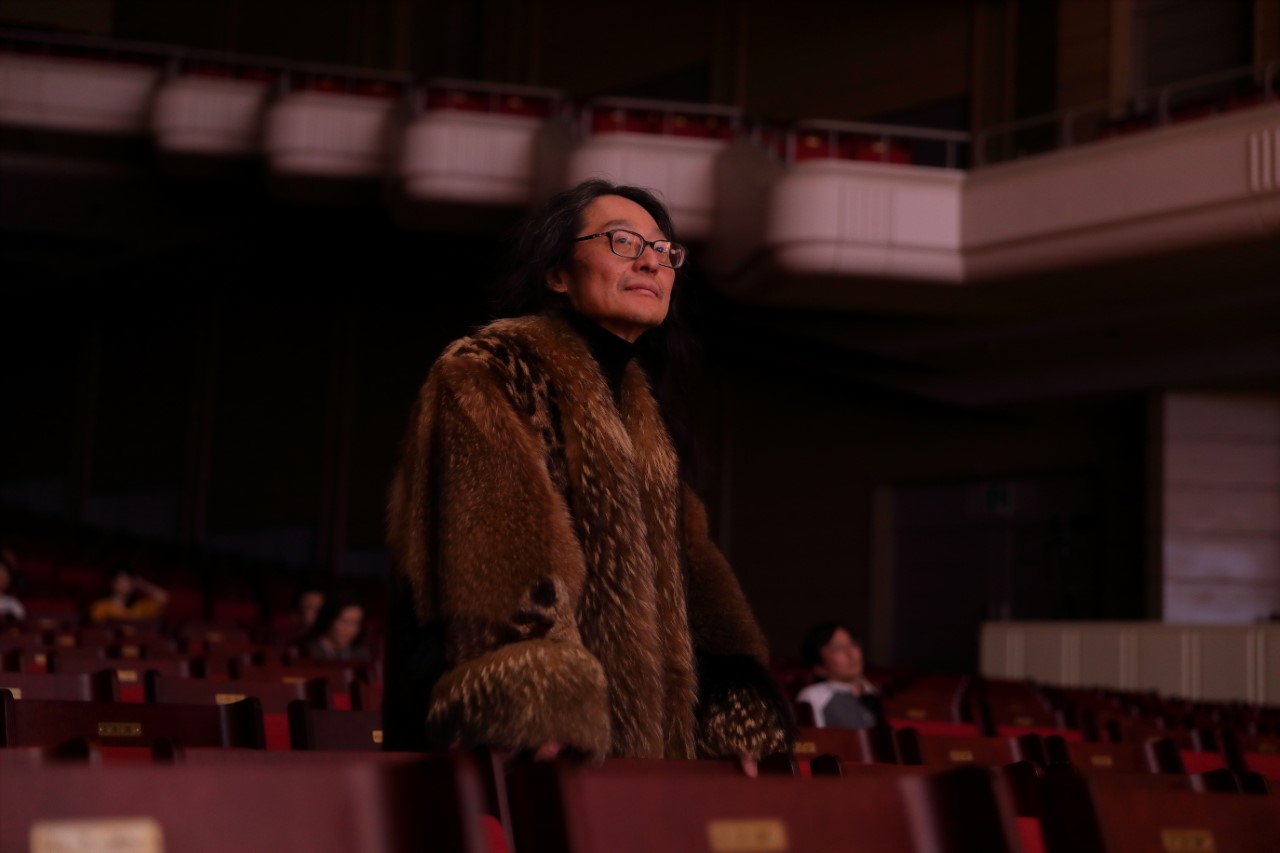
Bleach is back with Bleach: Thousand-Year Blood War, and composer Shiro SAGISU couldn’t be happier to return to what he calls his life’s work. SAGISU has written the music for dozens of anime—everything from Evangelion to Berserk—and with the relaunch of Bleach, he spoke to Otaku USA about his early love for music, how he approaches his composing, how he’d love to have his fans follow him on Twitter and even what he thinks about the title Otaku USA. And check out the Bleach soundtrack here!
Otaku USA: How did you first get interested in music?
Shiro SAGISU: There are two big things that influenced me to like music. One thing is that, about sixty years ago, in my neighborhood there was a Catholic monastery. So there I learned how to play the violin and piano around when I was four or five. It was very rare in Japan at the time for there to even be a Catholic monastery. The second reason, which is also a very rare situation, but my father was a manga artist and he also owned an animation and special effects studio. So he was kind of like the Walt Disney of Japan. So growing up in that environment, I had a studio right next to my home and there were people working on entertainment day and night, just going in and out. So I was pretty much born into an entertainment industry situation. I think those two unique situations that I was born into really helped me develop my love for music.
You have composed character themes. How do you approach composing music for different characters in BLEACH?
When I have to think about characters in terms of song writing, I tend to first start off with whether this character is masculine or feminine. And then from there, rather than thinking about the character’s personality, I tend to try to think of the opposite side of the character’s personality. Kind of like, if there was a very cheerful character, how does that person have a dark side? What is that person’s dark side? Because it’s important to know everyone has two sides to them and their personality, and it’s important to know the side they typically don’t show. Because especially in anime, there tends to be a lot of times where the music shows what the character is thinking about doing next rather than what the character is doing in the moment or thinking in the moment. It’s important to use the music to portray what the character may be thinking about doing next or what is coming for the character next and what the thoughts are of the character.
How long does it take you to write your compositions? How long does it take for one full TV series, and what was the case for BLEACH?
I want to do my best at all times. Bleach was especially long. It’s a very long-running series, and it’s a very, very long process to write all the music for Bleach. Sometimes if I’m really, really focused, I’ll write music for twenty-four hours. So at that point, there’s no long or short, because there’s only twenty-four hours in the day. I’m constantly thinking of the music that I’m writing. I’m very animalistic in the sense of how I write. I don’t really think about the number of cours the anime could have, or the number of episodes the series could have. I’m constantly just thinking and trying to output as many songs and as much as I can for the series. Specifically for Bleach, it’s my life work. I try to give everything I can to the series and the music of the series.
Generally how much freedom do you have writing music for an anime, and how much is the director in charge? What was the case for BLEACH?
I believe that the most important part in any piece, whether it be a live-action movie or whether it be an animation movie or any kind of soundtrack, the relationship between the director and me is the most crucial part in writing the songs and the soundtrack. It’s very important to me to develop a good relationship and a good connection with them, and to hear directly from the director what kind of piece he is trying to make. For me, I make music very freely, so it’s very important for me to kind of tell exactly how I can get that freedom from the director. If we’re speaking from the director’s point-of-view, the more freedom they give to me, the better songs I will end up writing. Especially for Bleach, they gave me a lot of freedom and I’m able to do a lot on my own free will. Bleach itself is my life work and it’s my life itself. It’s very important to me that I can write the music for it in the way I want to, and I feel that when I have that freedom and when I can write it the way I want to, it’s better for the series of Bleach as well.
What is it like returning to BLEACH after all these years?
I am very, very excited. But I am also at the same time feeling very relaxed, kind of like I came back to my home or a room that I really liked. It’s kind of clashing because I feel comfortable but also excited. It’s a nice feeling.
Can you tell us any anecdotes about rearranging the Japanese national anthem for the 2020 Olympics?
Typically for the American or European national anthems, they tend to arrange it depending on whatever event they’re using it for. I was always jealous they were able to do that. This time when I needed to arrange it for the Olympics, I realized that the Japanese national anthem is very short, and it’s a very tough song. It’s kind of like this big solid rock. There isn’t much you can arrange with. So it was very difficult to try to arrange that song into the modern Olympic aesthetic. I put my most effort on trying to make that happen, to add on that modernness to the song. Typically there’s a whole big, huge audience for the Olympics, but because of COVID there wasn’t an audience. It was very odd for me, even at rehearsal, to perform this piece in an empty hall. It was a very weird feeling. Thinking back on it now, I feel that the arrangement for the solemn national anthem matched the stillness of the empty hall.
Is there anything you’d like Western fans to know about you and your music?
One thing that I really want my fans to know is that my fans and I are constantly connected. Twenty, thirty years ago it was hard to imagine the world that we live in right now. Because of social media, because of the internet, we can all constantly be connected at all times. So if there is something that I would want to voice my opinion on, or a song or a sound I want everyone to hear at the moment, I can release it and share it with the world immediately. That’s a very strong connection to have with my fans. I’d like to utilize that and make sure my fans and I are connected in a very strong way. I also have a Twitter, so I would like my fans to follow my Twitter. It’s a very unique situation for Japanese composers, but I actually travel a lot, whether it be America or Europe. Especially in Europe, whenever I write my name on anything, whether it be at the hotel, or the restaurant, or the post office, people recognize my name and will often talk to me and say, “You’re the guy who writes music for Bleach.” I can always answer questions fans may have, so I’d love it if fans would speak up and talk to me more whenever they recognize me.
Is there anything else you want to talk about?
Yes. The name Otaku USA shows how much respect and interest you guys have in Japan and I feel a lot of respect for people like you guys.
____
Danica Davidson is the author of the bestselling Manga Art for Beginners with artist Melanie Westin, plus its sequel, Manga Art for Everyone, and the first-of-its-kind manga chalk book Chalk Art Manga, both illustrated by professional Japanese mangaka Rena Saiya. Check out her other comics and books at www.danicadavidson.com.


